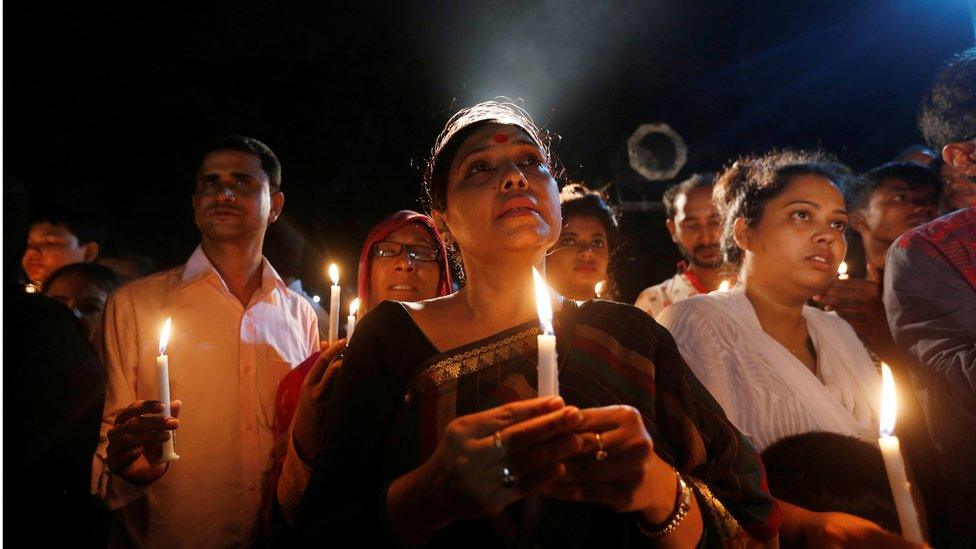What we know: The Bangladesh bakery attackers
- Published
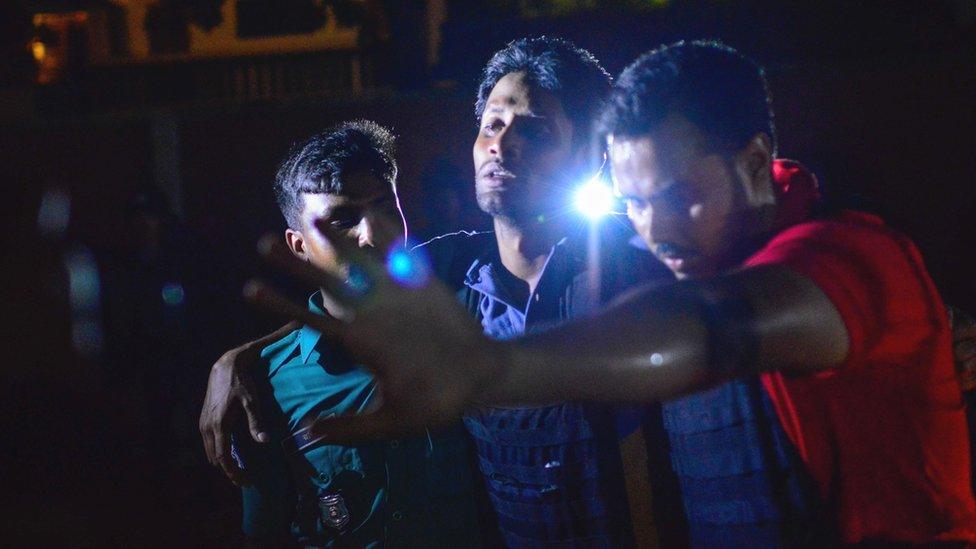
Twenty hostages were killed when Islamist militants stormed a cafe in Bangladeshi's capital Dhaka on Friday, the country's worst terror attack. Officials have named five of the men who carried out the attacks but what do we know about them and where they came from?
Who are they?
The attackers are all Bangladeshis from rich families and with good educations, according to Bangladeshi's home minister Asaduzzaman Khan.
Police have released photographs of the bodies of five of the attackers, along with their first names: Akash, Badhon, Bikash, Don and Ripon.
Mr Khan has said that the attackers allegedly belonged to banned domestic group Jumatul Mujahedeen Bangladesh (JMB), despite the so-called Islamic State saying they carried out the attack.
Their families had not heard from most of them in months, according to police.
However, online reports have identified four of the suspected attackers under different names to those released by police.
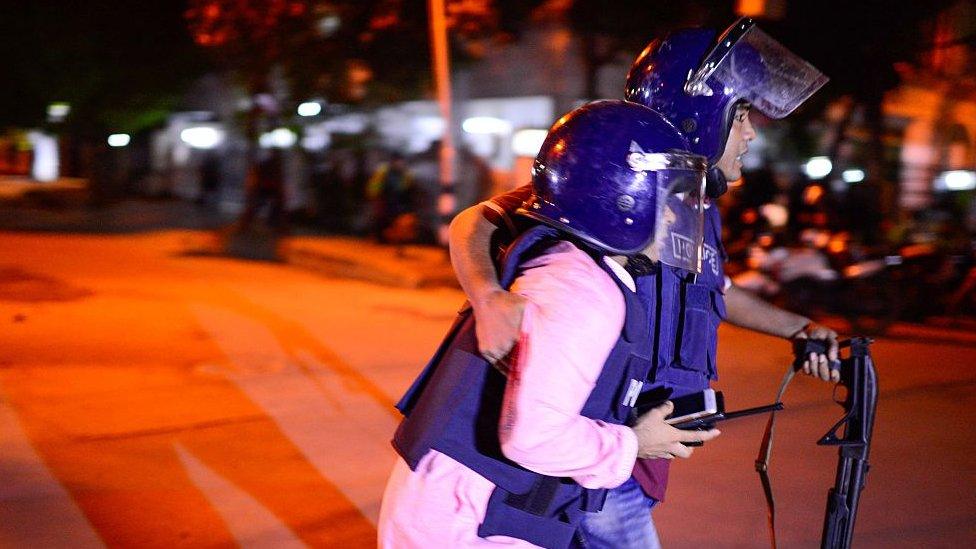
Three have been identified on social media as Nibras Islam, Meer Saameh Mubasheer and Rohan Imtiaz.
A fourth was identified by media in the capital Dhaka as Khairul Islam Payel, who reportedly came from the northern district of Bogra and studied in a madrassa (Islamic school). Payel disappeared about a year ago, according to Prothom Alo newspaper.
What do we know about them?
According to reports from the Daily Star newspaper, external, three attackers were from similar backgrounds:
Well-educated
All three had good educations and are said to have attended private schools in Dhaka.
Nibras Islam was said to have studied in Turkish Hope School, an international private school in Bangladesh, then studied in North South University, a top private university in Dhaka.
He later allegedly attended Monash University at its Malaysia campus, according to information on his social media page.
Meer Saameh Mubasheer and Rohan Imtiaz both reportedly attended Scholastica, a private English school in Dhaka.
Active on social media
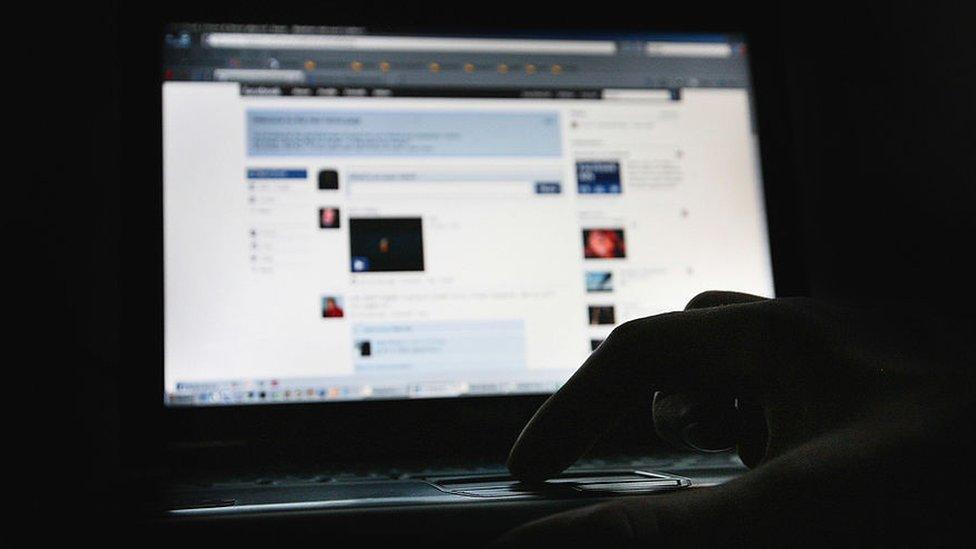
Friends, former classmates and other acquaintances have come forward to identify the attackers after the SITE Intelligence Group published photos of the five gunmen.
Islam was active on both Twitter and Facebook before he went missing, and was revealed to have disappeared on 3 February through posts on his Facebook wall. His account has now been deactivated, although reports say his Facebook cover picture also featured a picture of him playing football.
Mubasheer was identified by a user named Mahamudur Rahman who originally posted that Mubasheer had gone missing on 1 March. Rahman later posted after the attacks that the same man pictured missing was one of the Dhaka attackers.
Imtiaz was identified in local media as the son of Imtiaz Khan Babul, an Awami League party leader, from Facebook pictures.
His parents filed a missing person's report with the police after he disappeared last December and had not heard from him since. But they recognised him from photographs of the attackers that have been published in the local media.
Now police have urged people to come forward with information about people they know who have gone missing, reports BBC Bengali's Waliur Rahman in Dhaka.
Prominent relatives
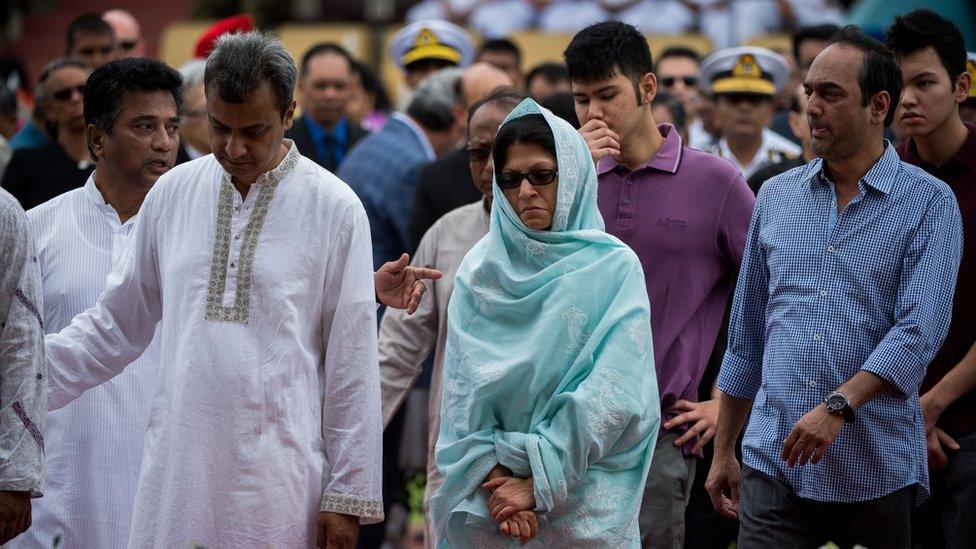
Islam's father is said to be a businessman who owned two houses in Dhaka. He has three uncles, one a police officer, the other a scientist and the last a deputy secretary to the government, according to reports by news outlet bdnews24.com, external.
Mubasheer's father is an executive at Alcatel-Lucent Bangladesh, a French telecommunications company. His mother is said to teach at a government college, while his brother studies at the University of Toronto.
Imtiaz's father is a former leader of the Awami League, Bangladesh's current governing party. He is also a deputy secretary at the Bangladesh Olympic Association.
"I am stunned to learn this, dumbfounded," Imtiaz Khan told BBC Bengali.
"My son used to pray five times a day from a young age. But we never imagined this. There was nothing at home, no books or anything to indicate he was leaning that way, So we had no inkling."
- Published4 July 2016
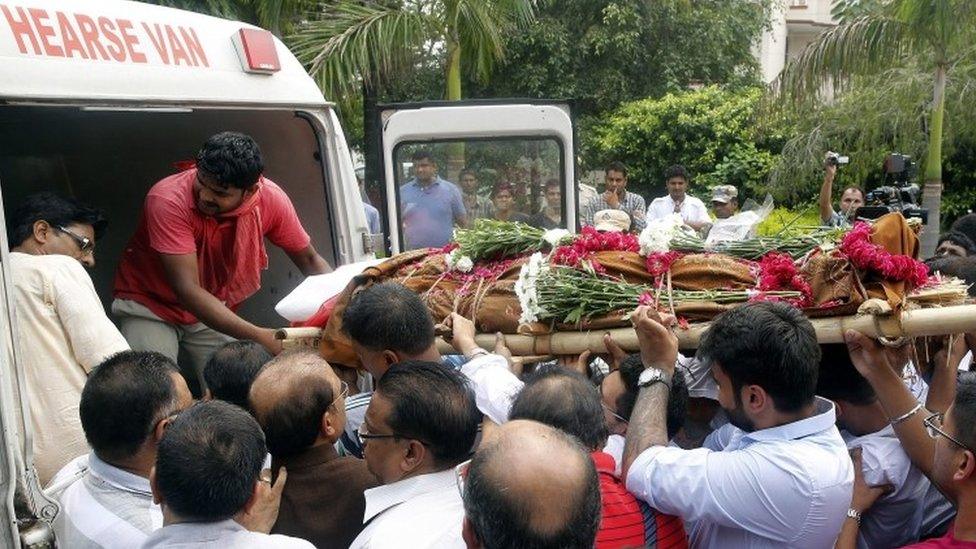
- Published2 July 2016
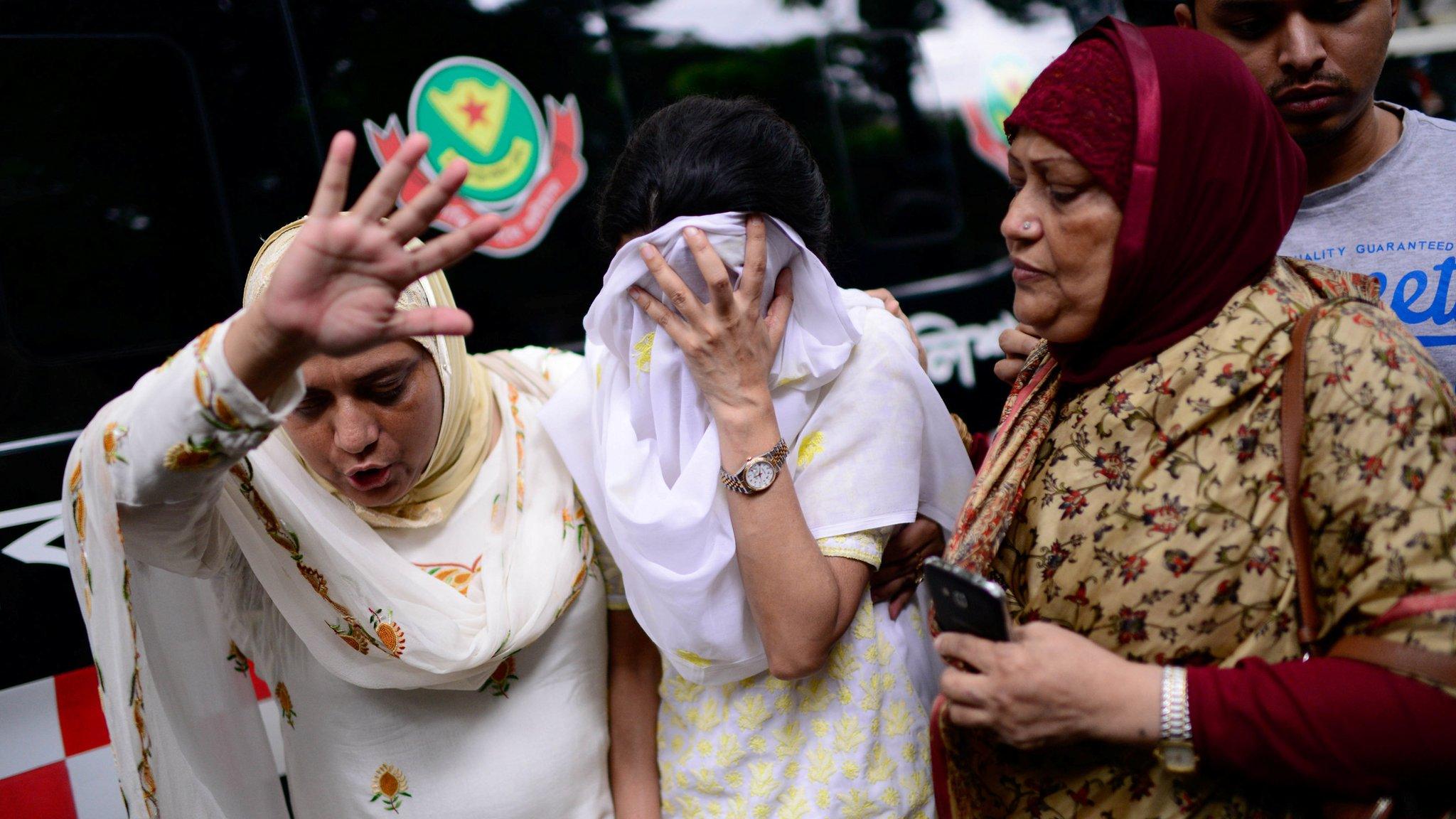
- Published3 July 2016
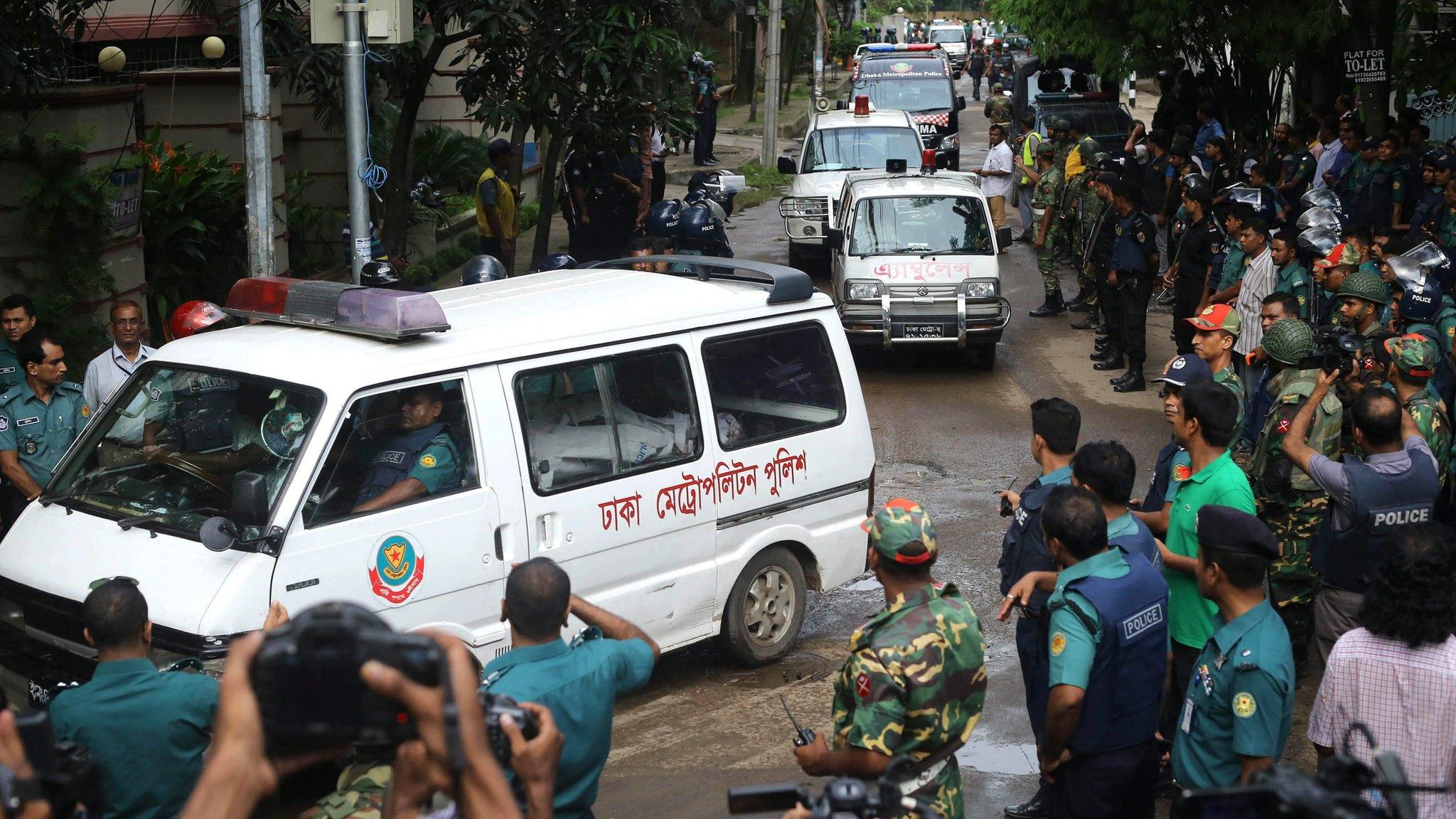
- Published3 July 2016
